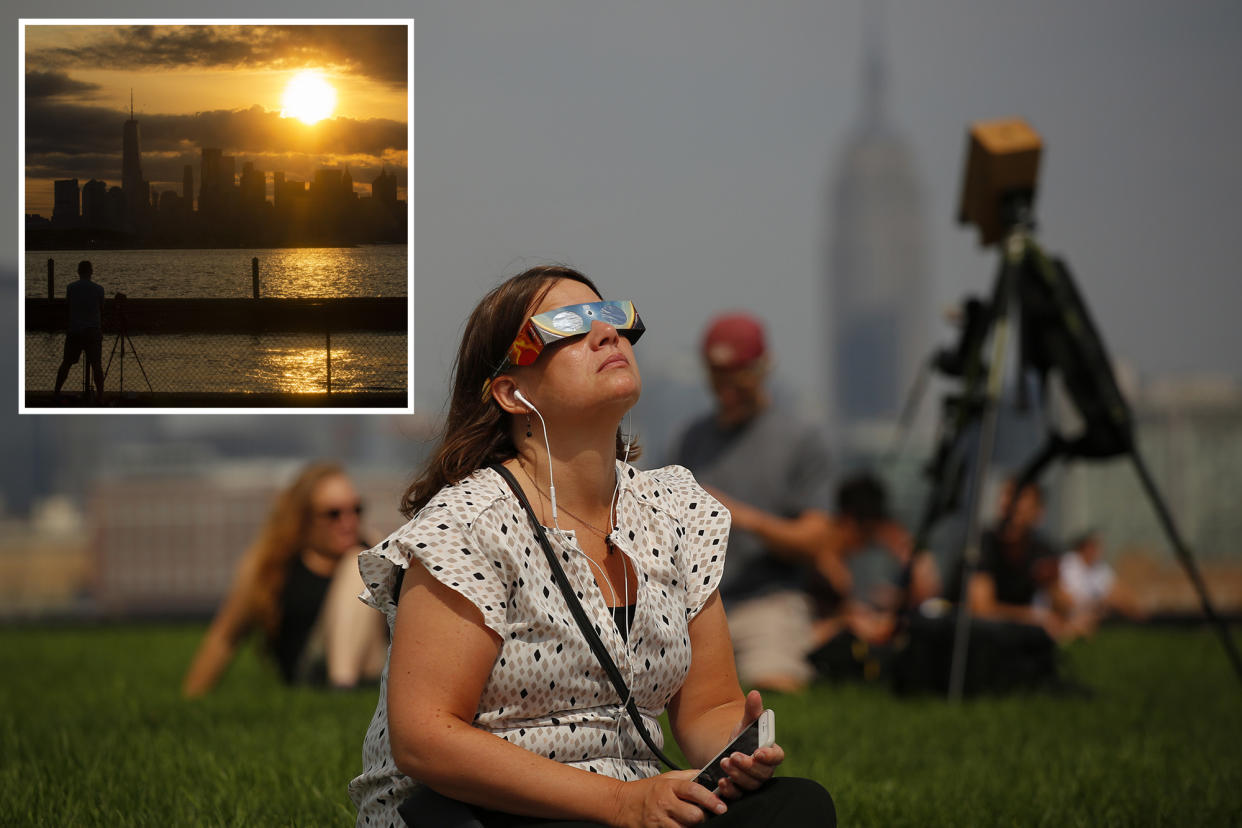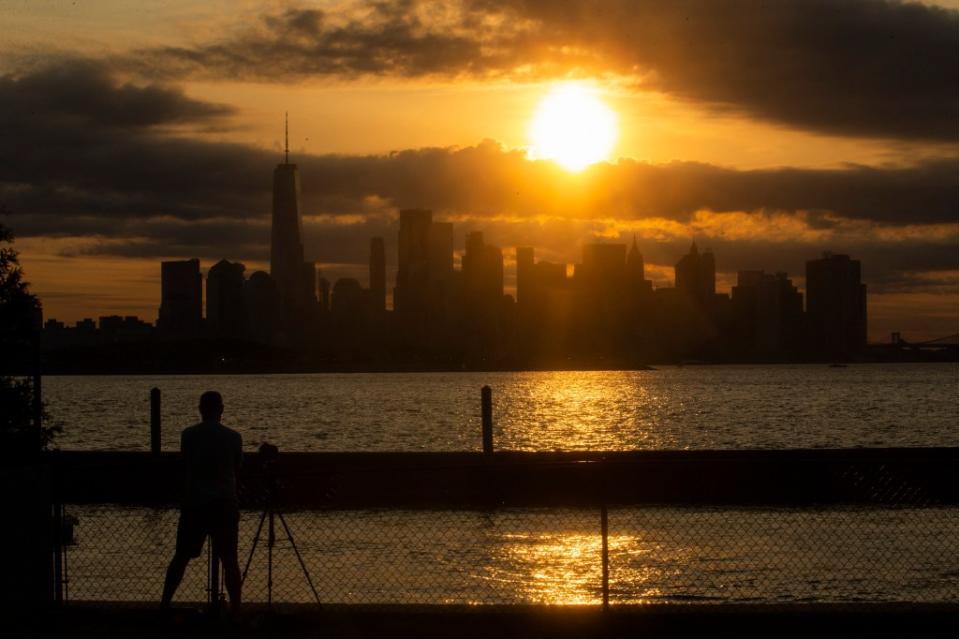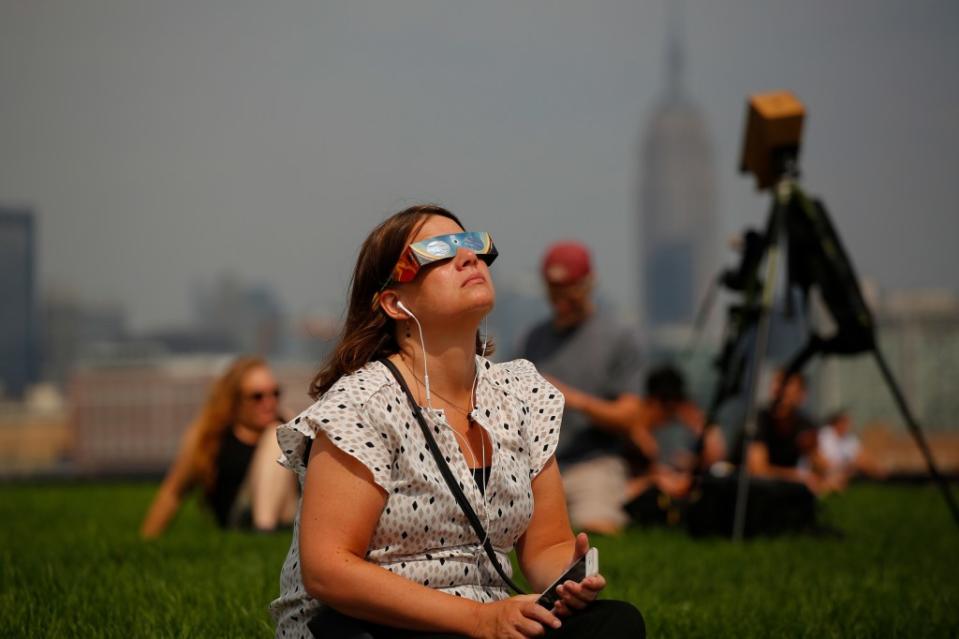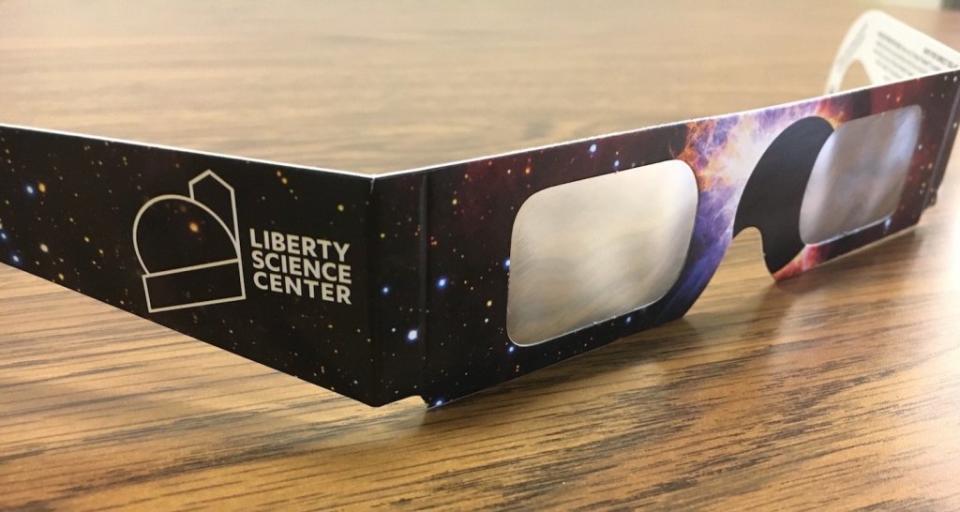What time to watch the solar eclipse 2024 in New Jersey

The eclipse is coming to the Garden State.
While New Jersey won’t see a total solar eclipse this afternoon, it isn’t going to be left out of the biggest celestial event of the decade.
The moon will make its way between the sun and the Earth in the rare phenomena around 3:30 p.m., giving the state nearly 90% totality.
The closest area to New Jersey that will see a total solar eclipse is Buffalo in the western part of New York, which will see the sun completely covered by the moon for three minutes and 31 seconds from 3:18 to 3:21 p.m., according to NASA.
The New York metro region won’t see a total eclipse until 2079.

Best time to view the eclipse in New Jersey?
New Jersey residents will begin to see the phenomena around 2:10 p.m. and it will last until 4:36 p.m., according to NASA.
Shortly before 3 p.m., viewers will see roughly a third of the moon covered, creating a crescent shape.
By 3:25 p.m., the sun will be 90% covered by the moon before it begins to drift northward up the sun and completely disappearing by 4:36 p.m.

Where can you view the eclipse?
There are many places to enjoy a solar eclipse party, including Liberty Science Center in Jersey City, which claims to be hosting the “largest astronomy party” in the state.
The bash begins at 1 p.m. and those attending will have multiple ways to view the celestial event, including through one of the 10 telescopes on site, if weather permits, the center announced on its website.
It is also offering a live webcast from NASA showing the eclipse and hand out viewing glasses, among other celebratory events.
The Morris Museum Astronomical Society will also offer telescope viewings as will the Rowan University Edelman Planetarium in Glassboro.
Bell Labs in Holmdel will also be hosting a short viewing party from 3 p.m. to 3:30 p.m., where it will allow people up on its roof deck to view the eclipse, as well as stream it in the main atrium.
If a science center isn’t your thing, but the beach is, fear not! Jersey has you covered!
The Gateway National Recreation Area in Sandy Hook is hosting a party on the beach. Free glasses will also be handed out.

Where to get free solar eclipse glasses?
Even though New Jersey isn’t seeing a total eclipse, it is imperative that you wear special glasses to protect your eyes from the blinding sun.
Plenty of places across the Garden State are offering free eclipse glasses, including all Warby Parker locations, as well as many local libraries, including Sussex County and Caldwell Library.
Most eclipse glasses are reminiscent of the 3D movie glasses you get at the theater, but they won’t make the eclipse appear right in front of you, but rather protect the eyes from staring at the sun.
It might be tempting to look at the sun without protective eyewear due to the darkness, but optometrists warn against it, saying they typically see more patients coming in complaining of blind spots or blurry vision after the phenomena.

